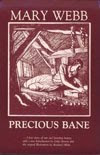We had a great discussion Tuesday. We discussed everything from Ethiopia's prosperous history to the challenges of international adoption. Which is pretty much the span of the book. It was interesting to hear from our two social workers about the subject of adoption and the challenge of attachment when adopting older kids. We tend to romanticize international adoption as a solution to situations like this. We don't quite understand the sacrifice involved to make the adoption a success. It was good to hear a professional's point of view on the subject.
Okay, my thoughts on this book...I found this book completely fascinating. It wasn't a particular fast read for me since so much of it felt like a history lesson in various subjects including the evolution of Ethiopia, the arrival of AIDS, and the frustrating greed of the pharmaceutical companies. These bursts of historical background were juxtaposed withing the emotional story surrounding our heroic, but not perfect, Haregewoin Teferra.
I felt like I was getting the big picture while feeling the impact on the individual. As a result, the author told a complete story of this woman and what exactly she was up against. It tickled my intellectual pallet as well as my emotional one. I thought Melissa Fay Greene did a great job of creating awareness.
Just a few specifics...
Right away I was caught up in the gradual downfall of Ethiopia. Once ruled by the Queen of Sheba and considered one of the great four kingdoms, Ethiopia (then Abyssinia) was powerful and industrious.
I never knew this about Ethiopia. My limited knowledge of said country was only that they were the butt of many jokes growing up. When a joke needed a starving waif that would do anything for food simply insert an Ethiopian and the joke was funny for some reason. Now I get why.
So, once powerful and industrious, now the majority of it's people live on less than $2/day. What happened? Greene goes into detail to portray a series of corrupt leaders who's personal power and wealth far exceed their concern for the people. I can't help but feel very grateful for my country, founded on democracy rather than subject to a king (thanks be to Washington for declining the invitation). Ethiopia tried to instill democracy but unable to achieve it when the powerful won't give up their power or give land to it's people.
The other impression I got from this book is the ghost-like role of parents, particularly mothers. The lack of parents haunt this story. It begins with mothers dropping their babies at Haregewoin's door; their last motherly act before sucombing to their illness. Then the neglect from lack of emotional resources. With so many orphans how can they all feel the love they need. Haregewoin is stretched emotionally thin with so many in need of love. Their eyes start to turn away, empty and unexpectant. My heart broke to read of a toddler left in her stroller all day, forgotton.
The most poignant to me was the author's own experience with the needy mothers outside of Haregewoin's compound. They surround her, calling her "Mama!" wanting anything from her. "Mama! they call me; it is their word of greatest respect and gratitude and it is also a word intended to generate a long term sense of obligation in me." Her only respit is to know that she'll leave this country to go home. But Haregewoin cannot leave or escape the word "Mama!"
In our discussion Maren mentioned her impulse to climb in bed with her children and whisper that she may not be perfect but she'll be there for them. I found this really touching and found myself, once again, grateful that she'll probably be able to keep that promise to them.
During my time reading this book I would get pangs of gratitude for what I have. In fact, I probably have way too much. When I hear people complain about their homes not being big enough I want to hand them this book and tell them to be grateful that you, as a middle-class citizen, don't have to shower outside!
I loved the book. Thought it was hard; awareness always is, but really necessary for me to read. I hope everyone got something from it. If anyone wants to share feel free to comment!
 The book for March is The Heretic's Daughter by Kathleen Kent.
The book for March is The Heretic's Daughter by Kathleen Kent.




































